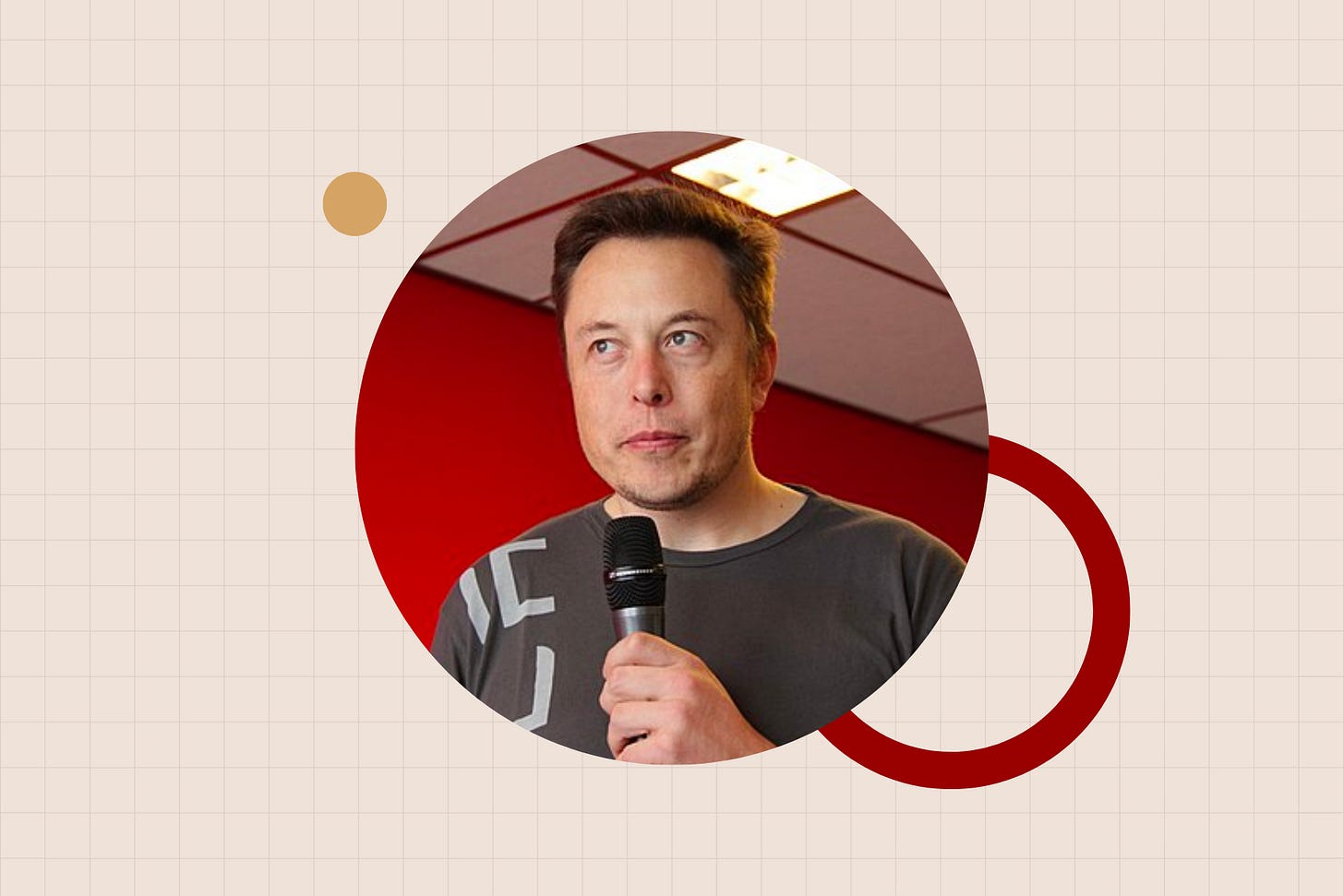The Top 10 Wikipedia Stories of 2023 (Part 1)
Exploring the most impactful, or at least the most amusing, news and events in Wikipedia and the Wikimedia movement over the past year
Three years have passed since the last installment of this annual ranking of the top news stories, events, happenings, and phenomena on Wikipedia. For those just arriving, The Wikipedian’s previous iteration published this series from 2010 to 2020—sometimes in two-part installments, as this one turns out to be.
Reviewing the news over the past year, there is plenty new that was not in play the last time I placed Wikipedia news into an arbitrary but satisfying order, including the rise of AI and Elon Musk’s unwanted attention. There are also returning topics which may never be truly resolved, such as internet speech regulations and censorship by authoritarian regimes.
Because Substack informs me the complete article is too long to be delivered in one email, today’s post will present stories 10–6, and 5–1 will follow tomorrow.
10. The Lourdes Maneuver
The least consequential item on this list is also the weirdest: an administrator who claimed to be a semi-famous musician started making trouble out of nowhere and, when called on it, abruptly announced they were in fact a different editor banned years earlier, then promptly blocked their own account, and disappeared.
In a little more detail: back in 2015, Wifione was an administrator who got caught doing paid editing for an Indian education company, and bullied other editors on their way to getting indefinitely blocked from editing. Flash forward to late 2015, a new editor using the name Lourdes claimed their IRL identity was actually indie musician Russian Red, real name Lourdes Gonzalez. Eventually, other editors started turning to Lourdes for advice about articles related to her career.
But this fall, something snapped: Lourdes started bullying other editors and was brought before the Arbitration committee (Arbcom) for what might well have been a slap on the wrist. Instead, Lourdes revealed a secret: “[This] might be quite dramatic… So here goes. I am User:Wifione, the admin who got blocked years ago. My RL identity has nothing to do with any celebrity or anyone like that. I am not writing this to have any final laugh.” But that’s exactly what they had: Lourdes’ final act as an admin was to indefinitely block their own account, disappearing into thin air like Keyser Söze.
9. Wikifunctions Debuts
Wikifunctions launched in August, the first new project from the Wikimedia Foundation (WMF) since Wikidata in 2012. The Wikipedian will struggle to explain what Wikifunctions is, much as it struggled to articulate the value of Wikidata when it first rolled out. I’ll do my best: Wikifunctions is a library of computer functions intended for use in the next WMF project, Abstract Wikipedia, whose goal is to use structured data to create articles in functions that can be easily translated into any language.
Both are led by a co-creator of Wikidata, Denny Vrandečić, so there is a track record here. However, the new projects were subject to a “sympathetic critique” by visiting Google Fellows, who argued Abstract Wikipedia should be built on a programming language already in widespread use. Vrandečić’s team disagreed strongly, and stayed the course. Wikifunctions and Abstract Wikipedia are a long way from making a serious impact, but it does sound pretty cool.
8. Regulatory Threats
Attempts to regulate online speech have posed various threats to Wikipedia for years; The Wikipedian’s top story of 2012 was Wikipedia’s one-day blackout to protest—and ultimately help derail—a pair of controversial “anti-piracy” bills in the U.S. Congress.
In 2023, the UK Parliament passed the Online Safety Act, giving Ofcom regulators broad new powers to discipline technology firms hosting a broad range of “harmful and illegal content”, especially pornographic content. Before it passed, WMF and Wikimedia UK called for an exemption for projects like Wikipedia, which was ignored. As the bill was about to become law, they scaled back to merely ask for “protection and fair treatment”. Ofcom has not yet chosen to exercise all of the new powers granted to it, so the law’s ultimate effect on Wikipedia remains to be seen.
Meanwhile back in the U.S., amendments to all-important Section 230 have been debated for years. In 2023 the Supreme Court considered Gonzalez v. Google, targeting YouTube’s recommendation algorithm, which it has sent back down to lower courts for the time being. Wikipedia hasn’t been destroyed by overprotective regulation yet, but the stakes are always high.
7. Wikimedia Conferences Return
The last prior installment of this list series, in 2020, listed at #2 “Effects of the global pandemic on the Wikimedia movement”, mostly about conferences being postponed, canceled, or moved online. This year they started coming back, even if many attendees still played it safe and masked up:
Wikimania, the biggie, was canceled in 2020 but this year went IRL again, in Singapore. Wikiconference North America, which had enough advance warning to hold its 2020 meeting online, reconvened in-person in Toronto.
Other conferences returned from dormancy or online-only status: GLAM-Wiki was back, in Montevideo, Uruguay, and WikidataCon, occurring every other year since 2017, was in Taipei after being online-only in 2021. Another conference devoted to education, held for the first time in 2019, returned for its second iteration, in Belgrade, Serbia.
There was one precursor to all of these: Wikimedia Summit, a meeting for affiliate groups held annually in Berlin, was canceled in 2020, but was the first major conference to return in September 2022.
Going into the pandemic, it seemed like online or hybrid conferences would become a thing. With a couple of years experience, it’s absolutely clear there is no substitute for actually holding conferences in-person.
6. Elon’s Vendetta
Elon Musk had a very strange year, yet the bothersome billionaire still set aside time to continue his mostly one-sided feud with Wikipedia. Because it seems that absolutely everything Musk does is news, this resulted in three utterly moronic yet still somehow global news stories over the last twelve months.
Last December, a Wikipedia article was created about the “Twitter Files” kerfuffle, which was nominated for deletion, as is fairly common for article topics editors consider potentially faddish. But Musk viewed it as evidence of Wikipedia’s “left-wing bias”, even though the article survived the hit. When a Musk follower suggested he consider buying Wikipedia, Jimmy Wales butted in: “Not for sale.” This made news in at least the U.S., UK, Turkey, and India, some taking the idea of Musk purchasing Wikipedia a little too seriously.
In September, Musk and Israeli PM Benjamin Netanyahu took lazy potshots at Wikipedia during a live conversation hosted on X/Twitter. Netanyahu: “History is written by the people who can harness the most editors.” Musk: “Yeah, I mean, the losers just got a lot of time on their hands and it’s like, what are they going to do? Edit Wikipedia. Literally!” The best part was when they laughed at their own jokes. News websites turned the not-quite-viral news clip into a story in the U.S., Israel, India, and Russia.
A month later, it was unclear if Musk was aware of his inspirational role in a Wikipedia fundraising banner that declared “Wikipedia is not for sale” as he indifferently asked “why the Wikimedia Foundation wants so much money?” X users fact-checked him through the site’s Community Notes feature, pointing to readily available answers. He then added: “I will give them a billion dollars if they change their name to Dickipedia”, among other barbs. Dumb as this was, it was actually the biggest story of the three, generating headlines from dozens of sources around the world. Of course, this also says as much about the state of global news as it does about Musk.
The thrilling conclusion of this post is now available here: “The Top 10 Wikipedia Stories of 2023 (Part 2)”. Thanks for reading!
If you liked this post, please consider sharing it with someone else you think would enjoy it. I know I would!
Wikifunctions logo by Jon Harald Søby and Stevenliuyi, CC-BY-SA 4.0; Elon Musk photo by Tesla Owners Club Belgium, CC-BY 2.0







